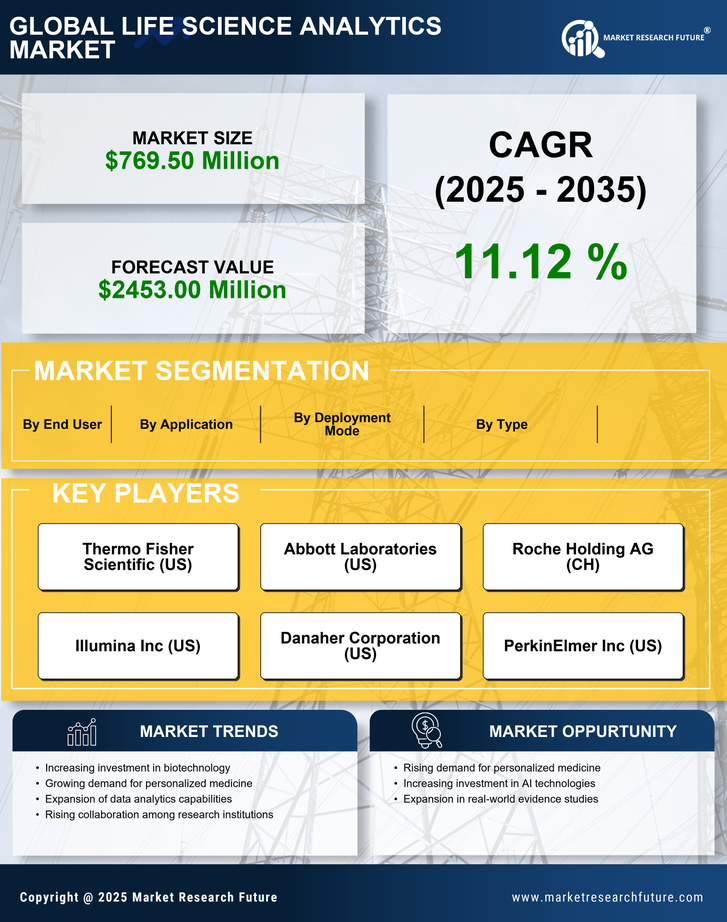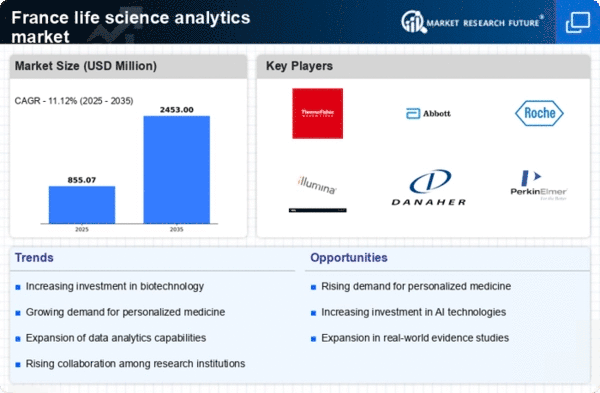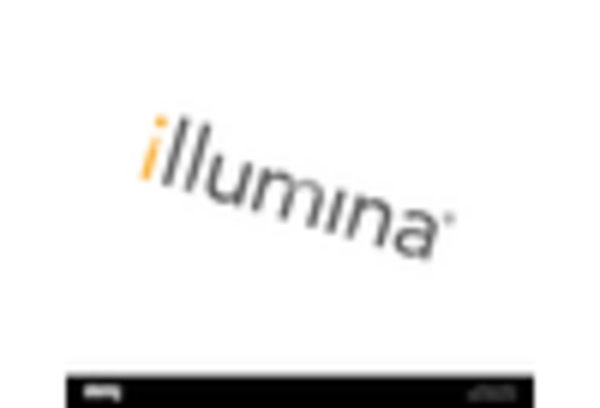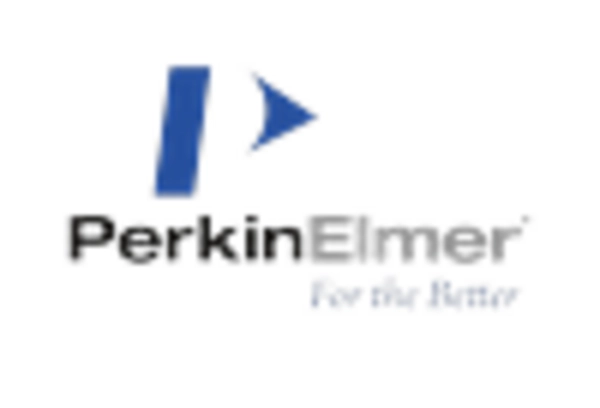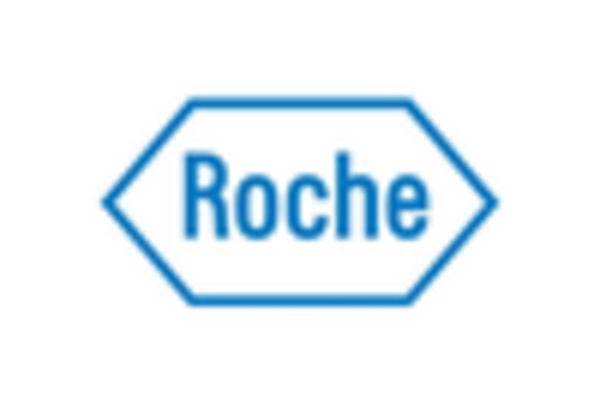Rising Demand for Data-Driven Insights
The life science-analytics market in France is experiencing a notable surge in demand for data-driven insights. This trend is largely attributed to the increasing complexity of healthcare data and the necessity for actionable intelligence in decision-making processes. As healthcare providers and pharmaceutical companies seek to enhance patient outcomes, the reliance on analytics to interpret vast datasets becomes paramount. In 2025, the market is projected to grow by approximately 15%, driven by the need for real-time analytics and predictive modeling. This growth indicates a shift towards more informed decision-making, which is essential for improving operational efficiencies and patient care within the life science-analytics market.
Advancements in Biotechnological Research
Advancements in biotechnological research are significantly influencing the life science-analytics market in France. The integration of sophisticated analytical tools is enabling researchers to derive insights from complex biological data. This is particularly relevant in the context of drug development and genomics, where analytics play a crucial role in understanding biological processes. The French government has invested heavily in biotechnology, with funding exceeding €1 billion in recent years, which has catalyzed innovation in the sector. Consequently, the life science-analytics market is poised for growth as these advancements facilitate more efficient research methodologies and enhance the overall quality of scientific output.
Growing Emphasis on Regulatory Compliance
The life science-analytics market in France is increasingly shaped by a growing emphasis on regulatory compliance. As the healthcare landscape evolves, regulatory bodies are implementing stricter guidelines to ensure data integrity and patient safety. This has led to a heightened demand for analytics solutions that can assist organizations in navigating complex regulatory requirements. In 2025, it is estimated that compliance-related analytics will account for approximately 20% of the market share. This shift underscores the importance of robust analytics frameworks that not only facilitate compliance but also enhance operational transparency within the life science-analytics market.
Collaboration Between Academia and Industry
Collaboration between academia and industry is emerging as a pivotal driver for the life science-analytics market in France. Universities and research institutions are increasingly partnering with biotech firms to leverage analytical capabilities for innovative research. This synergy fosters the development of cutting-edge solutions that address real-world challenges in healthcare. In 2025, collaborative projects are expected to contribute to a 10% increase in market growth, as they facilitate knowledge transfer and accelerate the commercialization of research findings. Such partnerships are vital for advancing the life science-analytics market, as they combine academic rigor with practical application.
Increased Investment in Healthcare Infrastructure
The life science-analytics market in France is benefiting from increased investment in healthcare infrastructure. The French government has prioritized the modernization of healthcare facilities and the integration of advanced technologies. This investment is expected to reach €2 billion by 2026, focusing on enhancing data management systems and analytics capabilities. As healthcare providers adopt more sophisticated analytics tools, the demand for life science-analytics solutions is likely to rise. This trend not only improves patient care but also streamlines operations, thereby fostering a more efficient healthcare system that is responsive to the needs of the population.
